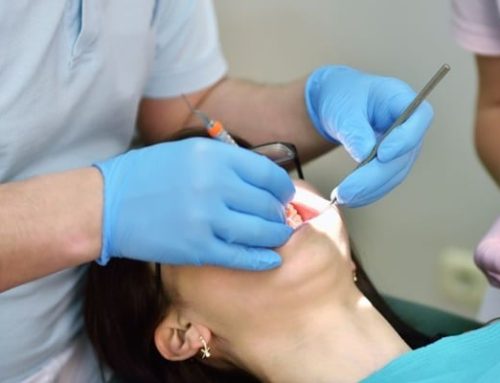Smoking affects your overall health and your oral health in significant ways. From stained teeth to gum disease, the negative impact of smoking can take a toll on your smile.
Whether you are considering quitting or want to learn more, understanding how smoking affects your mouth is essential.
A dentist in Medina can guide you in managing the oral health challenges that come with smoking and help you take steps toward a healthier future.
Stained Teeth and Persistent Bad Breath
One of the most noticeable effects of smoking is discolored teeth. Tobacco contains chemicals like nicotine and tar, which stick to your enamel and cause stubborn yellow or brown stains that can be hard to remove.
Beyond aesthetics, smoking often leads to persistent bad breath, also known as halitosis. The particles from tobacco linger in your mouth and throat, creating an unpleasant odor that brushing alone cannot eliminate.
Increased Risk of Gum Disease | Dentist in Medina
The negative impacts of smoking extend to your gums. Smoking significantly increases your risk of gum disease. Smoking compromises the immune system, reducing the body’s ability to fight off bacteria that cause gum infections.
This can lead to conditions like gingivitis and periodontitis, in which the gums begin to swell or separate from the teeth. If untreated, this can cause bone and tooth loss.
Smokers are also more likely to experience slower healing after gum treatments or surgeries.
Reduced Saliva Production and Dry Mouth
Smoking can cause dry mouth due to reduced saliva production. Saliva is essential for clearing food particles and balancing acids in the mouth, protecting teeth and gums.
Insufficient saliva can elevate the risk of cavities, oral infections, and discomfort. Addressing dry mouth with the help of a dentist in Medina can help minimize these risks and improve oral health.
Black Hairy Tongue
Black hairy tongue is a condition that occurs when the small bumps on the tongue, known as papillae, become elongated and accumulate dead cells, bacteria, and debris. Smoking is a significant risk factor for this condition, as the chemicals in tobacco can disrupt the natural cleaning process of the tongue and encourage the growth of bacteria. The dark discoloration associated with black hairy tongue is often more pronounced in smokers due to the staining effects of tar and nicotine. While it’s usually harmless, black hairy tongue can be unpleasant, and improving oral hygiene and quitting smoking can help alleviate the symptoms.
Oral Cancer: A Severe Consequence | Dentist in Medina
One of the most serious outcomes of smoking is the increased risk of oral cancer. Using tobacco is a primary factor in the development of cancers affecting the mouth, lips, and throat.
Regular dental check-ups are crucial, as a dentist can spot early warning signs of oral cancer, such as sores, lumps, or red patches, and recommend appropriate treatment.
According to The Oral Cancer Foundation (https://oralcancerfoundation.org/facts/) close to 58,500 Americans will be diagnosed with oral or oropharyngeal cancer this year. It will cause over 12,250 deaths, killing roughly one person per hour. Of those newly diagnosed individuals, only slightly more than half will be alive in 5 years.
Smoking and Delayed Healing After Dental Procedures
Another significant consequence of smoking is its impact on the healing process after dental procedures. Whether you are undergoing a tooth extraction, dental implants, or gum surgery, smoking can slow down recovery.
The chemicals in tobacco restrict blood flow, reducing oxygen levels in your tissues, which can interfere with your body’s ability to heal effectively. This delay in healing increases the risk of complications such as infections, dry sockets after tooth extractions, or implant rejection.
For patients who smoke, following post-procedure care instructions becomes even more critical.
How to Quit Smoking and Improve Your Oral Health
Quitting smoking can be challenging, but it’s achievable with the right approach. Start by setting a quit date and prepare for it by removing cigarettes and smoking-related items from your home and vehicle. Nicotine replacement products (like patches, gum, or lozenges) can help manage cravings. Your primary care physician may be able to prescribe medications to help manage urges and withdrawal. Consider joining a support group to stay motivated. Identify and try to avoid triggers, such as stress or certain social situations. If stress is a trigger, try to find a healthier coping strategy such as exercise. Gradual reduction or a cold-turkey approach can work depending on your preference, but the key is persistence and seeking support when needed.
The negative impact of smoking on oral health is undeniable. Smoking affects everything from the appearance of your smile to serious health risks like gum disease and oral cancer.
A dentist in Medina can help you address these concerns and work toward restoring your oral health. Taking steps to quit smoking and maintaining regular dental visits can make a lasting difference in your smile and overall well-being.
Landry Family Dentistry is committed to providing high-quality dental care, focusing on patient comfort and personalized treatment. We ensure that every visit supports your oral health needs.






